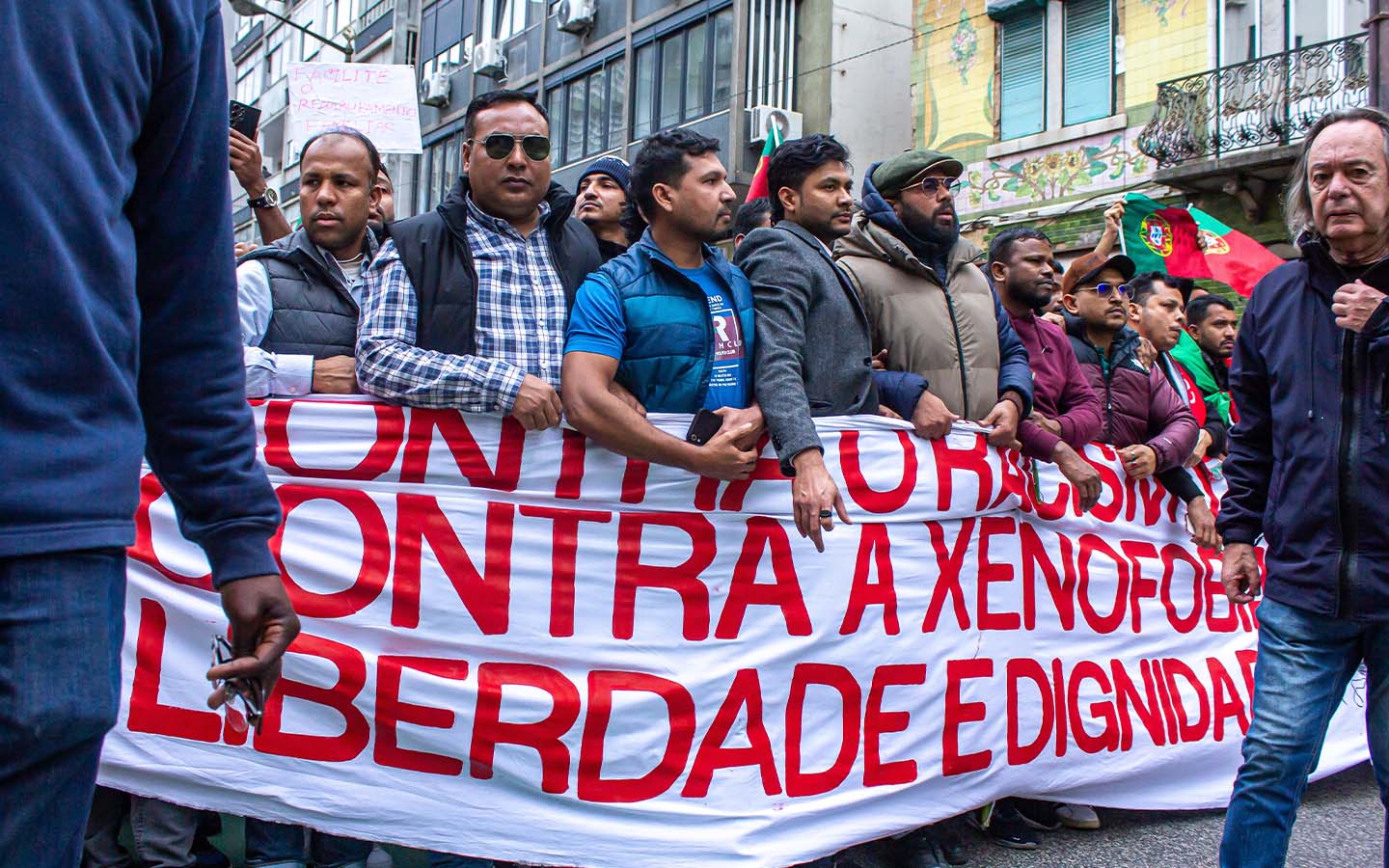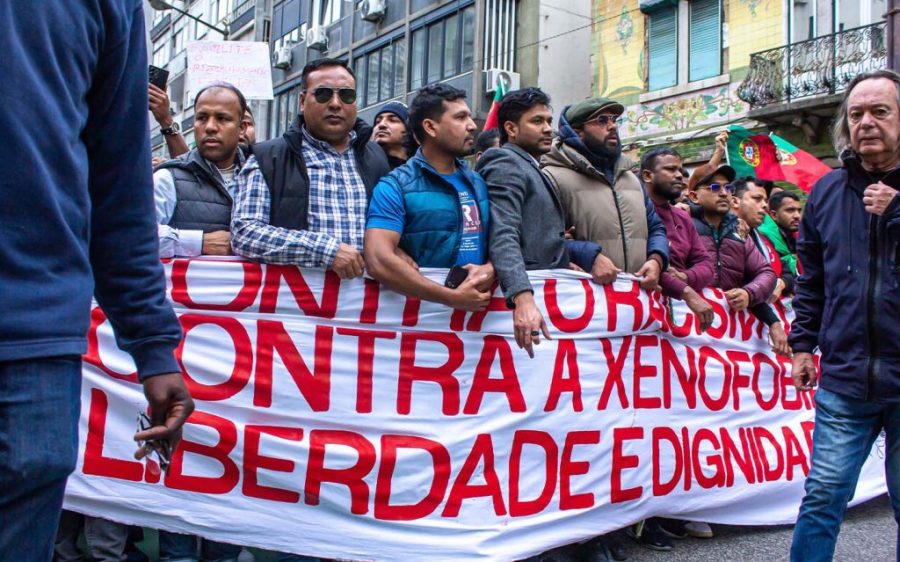Portugal’s new centre-right minority government has announced the tightening of various immigration measures amid pressure from the far right.
Residency requirements for most foreigners have doubled to 10 years, while citizens from Portuguese-speaking countries like Brazil must wait seven years, reports Euronews. Cabinet Minister António Leitão Amaro justified the increase by stating that the “an effective connection” to Portugal was a requirement “of belonging to the national community.”
Under current rules, foreigners living in Portugal must show adequate knowledge of the Portuguese language, have no previous convictions of more than three years in jail, and must not be considered a threat to national security. The new regulations require individuals to also demonstrate familiarity with Portuguese culture, have not served any effective prison sentence, and declare their backing for the country’s democratic principles.
Other efforts to tighten Portugal’s immigration and naturalisation laws include limiting the issuance of residence permits for relatives of legal immigrants and a provision to allow naturalised Portuguese who commit serious crimes to be stripped of their citizenship.
“We are significantly strengthening the requirements for access to citizenship, naturalisation, in line with the guidelines we were already included in the government’s programme,” Amaro said of the new rules.
[See more: Portugal plans to expel thousands of foreigners amid rising anti-migrant sentiment]
May’s snap election marked the third in three years. Prime Minister Luís Montenegro, facing a lingering personal enrichment scandal, pushed for a confidence vote in parliament to bring needed “political clarification.” Key opposition parties from both sides rallied together to oust his minority government, voting 142 to 88 against Montenegro.
Surveys taken before the elections indicated that Montenegro’s Democratic Alliance would narrowly win, just ahead of the Socialist Party and far-right Chega, whose support had “fallen slightly” would remain the third-largest bloc in parliament. When the results came in, the far-right, anti-immigration Chega party had edged out the Socialists for second place, becoming head of the parliamentary opposition to the new centre-right minority government.
A rising tide of far-right nationalism in Europe helped Chega grow from one seat in 2019, the year the party formed, to 60 seats. Its campaign centred on toughening immigration measures with citizenship reform as a key pillar. The party is expected to back the planned decree.
Portugal is home to around 10.5 million people including more than 1.5 million legal foreign residents, according to immigration and asylum agency AIMA, nearly triple the figure from a decade ago. Immigrants have traditionally come from former Portuguese colonies and Brazilians, among the top three nationalities for newcomers in 2022, still comprise the largest immigrant population at 450,000.
Statistics from economic data aggregator Pordata show that naturalisations dropped 20 percent in 2023, down to 141,300. The Portuguese government said in January more than 400,000 applications were pending.






